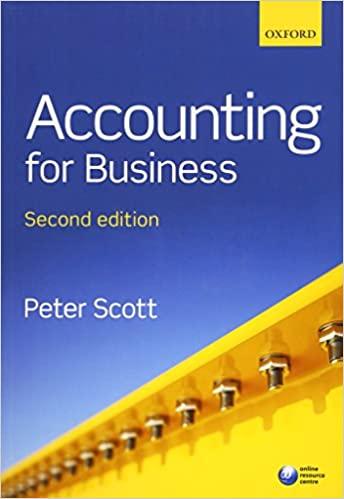Question
Amazon case study: Amazon Under Fire The following is a reproduction, with some paraphrasing, of a news article that recently appeared on Forbes.com. It highlights
Amazon case study: Amazon Under Fire The following is a reproduction, with some paraphrasing, of a news article that recently appeared on Forbes.com. It highlights the difficulty corporations face in getting shareholders to reward their growth strategies. You should be aware, as hinted by this article, that although Amazon reports staggering revenue figures, its high cost margins mean that profits, when they are achieved, are relatively small. Amazon under fire: What happens when sales growth isnt enough? The headline figure in Amazon.com's 2014 second-quarter earnings report looked great a 23% jump in sales from the prior year, to $19.3 billion but the underlying figures for the unprofitable online retailer brought out the pessimists on Wall Street. Amazon shares plummeted almost 11%, knocking $3.5 billion off the fortune of founder and CEO Jeff Bezos (now at $29.3 billion), after it lost 27 cents per share, much worse than the consensus estimate of 15 cents. The companys perpetual lack of interest in turning a consistent profit and declining gross margins which could fall further given the companys ambitious investing in new areas sparked concern among the analysts that watch the company. [Investors] are less patient than before regarding ongoing margin pressure, wrote Canaccords Michael Graham, who rates the stock a hold and dropped his price target to $340 after Thursdays results. UBS analyst Eric Sheridan argues that Amazon can keep growing revenue at a 20% annual clip, but that it might not be enough for the market. He thinks investors will struggle to buy the stock until more gross profit drops to operating income. ... Raymond James Aaron Kessler dropped his rating to market perform despite remaining bullish on Amazons long-term prospects, mostly because he expects shares to be stuck in a trading range given continued high levels of investment combined with slowing unit growth (especially international growth). More of the same came from Barclays Capital analyst Paul Vogel. Amazon has always operated at razor thin margins, he wrote, but rapid revenue growth and optimism on long-term margin upside has been able to sustain the stock. Thats certainly true, as shares have returned almost 700% over the last decade. But Vogel worries that [w]ith revenue growth decelerating and margins moving in the wrong direction, the stock could be in for a bumpy ride. ... Goldman Sachs Heath Terry offered a similar sentiment. Terry noted that the pressure on Amazon margins are clearly testing investor patience, but argued that Bezos focus on constant investments in areas like grocery deliveries will have a productive endpoint. We believe, as they have historically, these investments will generate incrementally higher levels of revenue and operating cash flow growth, ultimately driving share price outperformance. At the moment though, confidence that Bezos knows best isnt running at an all-time high. With Friday mornings 10.7% loss to $320.42, shares of Amazon are down nearly 20% for the year (Schaefer 2014)Question 4: Explain how an Amazon investor might use heuristics to decide whether to buy, sell, or hold Amazon shares. To answer this, you should explain the various categories of heuristics available to the investor.
Step by Step Solution
There are 3 Steps involved in it
Step: 1

Get Instant Access to Expert-Tailored Solutions
See step-by-step solutions with expert insights and AI powered tools for academic success
Step: 2

Step: 3

Ace Your Homework with AI
Get the answers you need in no time with our AI-driven, step-by-step assistance
Get Started


